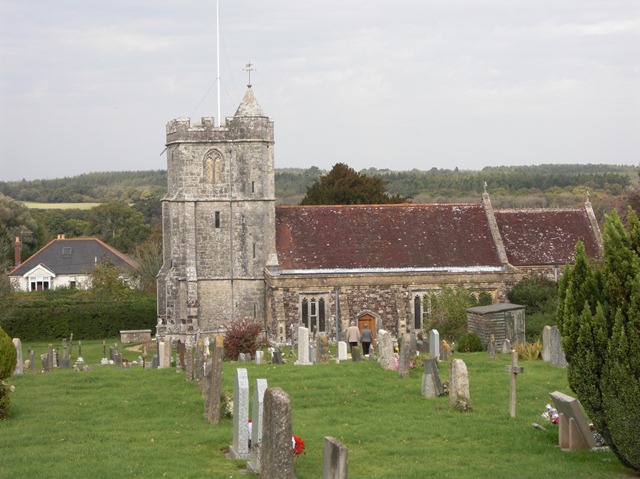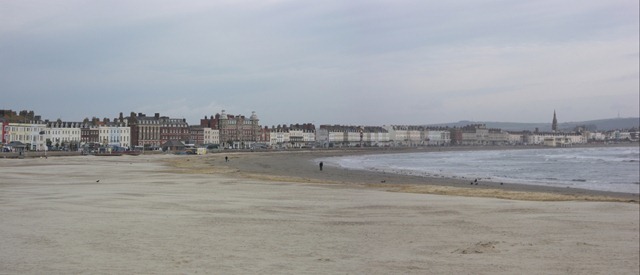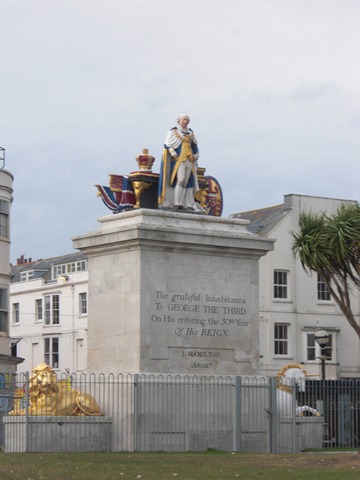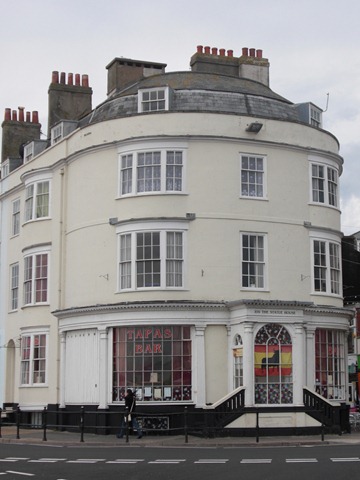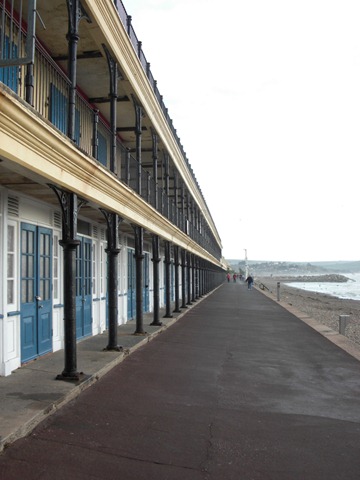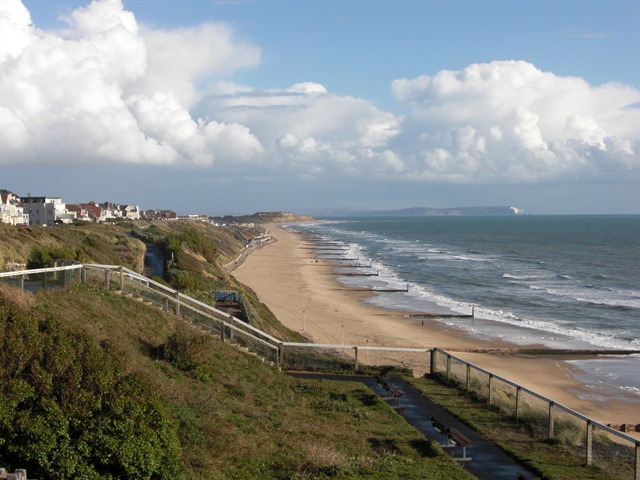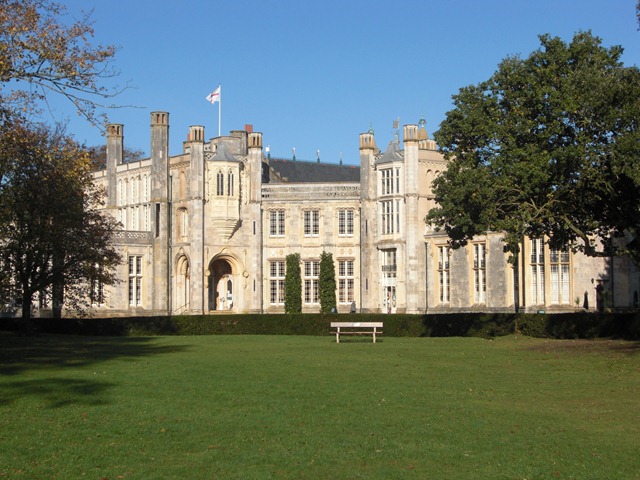Author's posts
Nov 05 2011
Let he who is without sin cast the first stone…
It’s been a while since I last had a good rant but the sanctimonious pontificating of bishops on wealth has set me off, that and the wine!
The Archbishop of Canterbury was going on about it earlier in the week, and today the Archbishop of York says that we should see the very wealthy in the same terms as we seen racists and misogynists. He doesn’t think the very wealthy should receive honours from the Queen. He is, of course, an unelected member of the House of Lords something which is a very high honour which is utterly unearnt on his part. He writes:
Over the last few decades racism has lost its respectability and is seen as unacceptable. The same applies to homophobia (the irrational fear of homosexuals) and discrimination against women.
Hold on! the Anglican Church only appointed it’s first female bishop in 2009, the Catholics still don’t allow it, and the Anglican Church will only allow a homosexual to be a bishop if they are celibate.
Apparently the Vatican has had a go too, at this point my irony meter explodes. Leaving aside their rather generous treatment of those clergy that sexually abuse children, there’s also the question of their absolute refusal to countenance contraception even to combat disease.
I’m not theologically trained but I believe there is something in the bible along these lines:
And why behold you the mote that is in your brother’s eye, but consider not the beam that is in your own eye?
Of course one could argue that the Anglican Church’s attitude to woman and homosexuals and the Vatican’s casual approach to child sex abuse by it’s clergy are not relevant to their opinions on financial matters. However these are both very wealthy organisations, they became wealthy because for a very long time they have collected tithes from their flock. They are also treated favourably in tax terms, perhaps we could ask the Archbishop of Canterbury what fraction of their income goes on charitable work.
This follows the Anglican Church’s deep confusion as it failed to realise that it’s view of St Paul’s Cathedral (entrance £14.50) as a major tourist attraction and revenue stream was a little incompatible with it’s vague support of the equally vague OccupyLSX movement.
Thank you for hearing my rant.
Nov 03 2011
Going Home
For the half-term holiday, The Inelegant Gardener and I went on a road-trip to visit my parents in the deep south… of England via Malvern where The Inelegant Gardener’s father lives.
The first stop on the tour is Wool, where I grew up. It’s the furthest I’ve ever lived from a motorway: about an hour and a half from the M5 in Somerset. On the way we pass the outskirts of Dorchester where Prince Charles’ model village, Poundbury, is plonked down incongruously on top of hill, it’s pretty pricey. I experience a navigation fail since the bypass is largely new since I left 20 or so years ago and my mental map is slow to update.
Signposts near Wool are decorated with a graphic of a tank (for The Tank Museum) and a monkey (for Monkey World).
The Inelegant Gardener is always amused by the signpost at the edge of the village for “New Buildings”, it’s been there since I was a child. Funnily enough there are new buildings close to the sign in the form of Purbeck Gates, a new development of 160 houses just approaching completion.
Even for a middle-aged atheist like me, it seems the church is the best image of the village, this is the Anglican church where Father Smedley dropped me on my back whilst demonstrating the christening ceremony to the religious education class.
Whilst staying in Wool we went off for a morning in Weymouth, there’s much road building going on since Weymouth will host part of the 2012 Olympics: the sailing part. There is also controversy since upgrading the roads approaching Weymouth will simply dump traffic faster into a small town that can’t handle it, furthermore the council appears to be thinking about charging people to access public land to view the sporting events.
Weymouth has some rather fine Georgian and Regency Buildings.
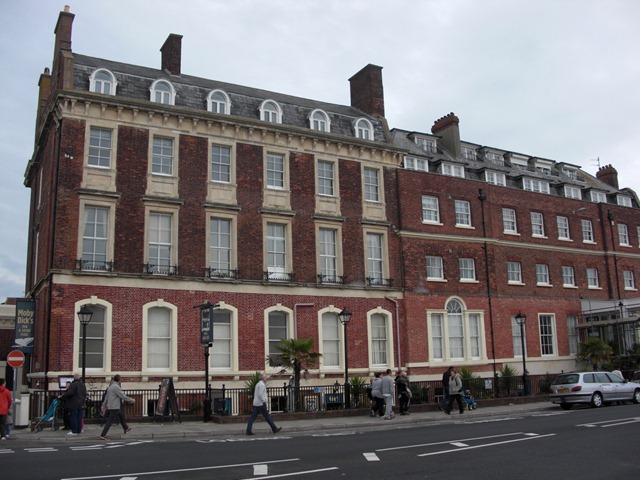 It was an early seaside resort, visited by George III. This is commemorated by a chalk horse on the road out of the town. There is also a statue celebrating his 50th year on the throne.
It was an early seaside resort, visited by George III. This is commemorated by a chalk horse on the road out of the town. There is also a statue celebrating his 50th year on the throne.
This is the house where my maternal grandmother started her working life in service at the age of 16, in around 1935:
I’ve always rather liked Weymouth but we rarely visited when I was a child, it turns out this is because my mum went to school in Weymouth and this has put her off the town ever since!
We saw a lot of beach huts on our trip, these are some rather smart examples from Weymouth.
We also visited Lulworth Cove, familiar to many as a geology field trip destination. This is Stair Hole:
I tend to take my home coast for granted, it is now branded “The Jurassic Coast”, and it’s spectacular!
Next stop Southbourne where my dad now lives with my stepmother, this is outside my home territory but not that far away.
Here you can see the lie of the land, with Hengistbury Head directly ahead and the Isle of Wight featuring the “Polar Bear” in the distance to the right.
We went off to Mudeford, where Highcliffe Castle sits on the top of the cliff as you can see – glorious blue skies.
And to finish the trip we went up to the New Forest, Britain’s most recently created National Park. This is a woodland glade close to where dad wants his ashes scattering:
And here’s a mushroom…
There was quite a lot of rainfall during the week!
Oct 20 2011
Book review: Edmond Halley Charting the Heavens and the Seas by Alan Cook
 Edmond Halley (1656-1742) was one of the key figures in the early history of the Royal Society. He is best known for predicting the return of his eponymous comet but over-shadowed by contemporaries such as Isaac Newton, Robert Hooke, Robert Boyle, Christopher Wren and Samuel Pepys. The biography I review here is “Edmond Halley: Charting the Heavens and the Seas” by Alan Cook.
Edmond Halley (1656-1742) was one of the key figures in the early history of the Royal Society. He is best known for predicting the return of his eponymous comet but over-shadowed by contemporaries such as Isaac Newton, Robert Hooke, Robert Boyle, Christopher Wren and Samuel Pepys. The biography I review here is “Edmond Halley: Charting the Heavens and the Seas” by Alan Cook.
Cook divides Halley’s life into three phases:
- His early life including trips to St Helena (1677-78) to compile the first comprehensive star catalogue of the southern hemisphere; a visit to Danzig to establish the accuracy of Johann Hevelius’ star catalogue (1679), along with further travel to visit astronomers in France and Italy. This phase culminates in the publication of Newton’s Principia (1687), which Halley paid for and managed.
- In a second phase Halley is found making two tours of the Atlantic (1698-1700), venturing to the very far south, with a view to establishing the longitudes (in particular) of various locations and measuring meterological and magnetic properties as he goes. He does this on the request of the king, as a member of the Navy. Subsequently he is sent to the Adriatic Sea (1703) to survey various potential naval bases for the English Navy. He also conducts a survey of tides in the English Channel (1701), following an earlier survey of the approaches to the Thames (1689) and is involved in diving operations on the wrecked frigate Guiney to salvage its cargo (1691), inventing a diving bell and diving suit for the purpose. He is also Deputy to Newton at the Chester Mint (1696-97), which was created along with four other country mints for the Great Recoinage.
- Finally he becomes Savilian Professor of Geometry at Oxford University in 1704 where he prepares a translation of Apollonius’s Conics – a classical text on geometry. After John Flamsteed dies (1720), Halley takes his place as Astronomer Royal at the Royal Greenwich Observatory. a post he holds until his death aged 85 in 1742.
The striking thing about the first phase of his life is the degree of responsibility and the quality of his connections at an early stage in his life. He goes to St Helena at the age of 20, breaking his study as an undergraduate at Oxford, with the blessing of both the Royal Society and Charles II; Cook comments that this responsibility at an early age is not exceptional at the time but the degree of high level support is notable. On his return the king directs the university to award him a degree. Following this, at the age of 23, he goes to Danzig to make measurements with Johann Hevelius (1611-1687) at the behest of the Royal Society to check out how Hevelius makes his measurements (he uses so-called open sights, rather than the more recently invented telescopic sights) and the Society wishes to know if his claimed accuracy is reasonable. This is a pretty delicate task for a young man!
On his return from Europe he works with Newton on the publication of Principia. Prior to Principia astronomy is about data collection and classification, after Principia there is a theory that will tie all of these data together (even if the calculations are not trivial) based on the core idea of universal gravitation attraction following an inverse square law. Halley funds the publication of the book, and is responsible for the printing, along the way learns the contents inside-out which he will later apply to the orbits of comets and the motions of the moon. In a way Halley’s prediction of the return of a comet is the proof of Newton’s theory: at the time comets were rather mysterious it was not clear at the time that they were bodies that orbited the sun but by applying Newton’s theory Halley could predict the return of a comet (everyone knew that the planets were in orbits, even if they didn’t know why).
It’s during this time Halley falls out with John Flamsteed (1646-1719) with whom he had been familiar since the creation of the Royal Observatory and Flamsteed’s appointment as Astronomer Royal. The core of the problem seems to be Halley passing on Flamsteed’s data to Newton for his calculations in Principia. Flamsteed later makes everyone he feels is in the Newton camp his enemy, maybe I need to read a sympathetic biography of Flamsteed!
The creation of the Astronomer Royal and the Royal Observatory at Greenwich, along with Halley’s government funded and mandated trips around the Atlantic mark the start of scientific endeavours funded by the government. Prior to this great programmes of observation such as those by Tycho Brahe and Johann Hevelius are essentially the enthusiasms of wealthy amateurs – they die with their masters. For problems such as the determination of longitude there is a need for extended programmes of observation whose results are available to all. In a sense the clash between John Flamsteed and everyone else represents the birthing pains of this switch, he kept “his” measurements close to his chest and was monumentally reluctant to publish them. This is someone who adopts a lifelong program of detailed measurements who, naturally, will collide massively with someone like Halley, who although he undertook such a program late in his life and was a competent observer in his own right, was much more an aggregator of data from other people.
During his life Halley was respected as one of the leading European mathematicians, a reputation which hasn’t really maintained. I feel this is a little unfair, Halley’s strength was in compiling data on, for example, cometary orbits from a range of sources including other contemporary observers, his own measurements and historical sources. He then applies the most recent theory of the time to make future predictions – most famously of the return of his eponymous comet. He also devises the program of measurement for the transits of Venus and Mercury, which are conducted on James Cook’s mission after Halley’s death, these are used to determine the size of the solar system. (The key parameter to be measured is simply the length of the transit, rather than the absolute time of its start and end). This process of turning theory, in this case Newton’s theory of gravitation, into practical application is critical but less well recognised than the “original seed”. In contrast to Joseph Banks and Charles Darwin, who were passengers on Royal Navy ships, Halley is master and commander – he has a full Navy commission and salary and is a competent seaman.
Halley’s work on geomagnetism and trade winds is also notable – he publishes the first known examples of “isoclines” to visualise his data – and he makes use of a wide range of measurements from right across the globe. In fact as a classical scholar he also investigates historical data which he incorporates into this work and other independent investigations.

One longstanding project is the understanding of the motion of the moon, it is relevant because if the location of the moon relative to the fixed stars can be calculated in the future then the moon can be used as a clock to determine the longitude: a grand challenge of the time. As Astronomer Royal Halley sought to record the motion of the moon over the 18 year “saronic” cycle, this is the period over which the moon’s orbit repeats. The results of these observations are not published until after his death.
On subjects such as tides, the magnetic field of the earth, calculations of lunar locations, geomagnetism, the source of the aurora Halley is often producing results that are not bettered for a hundred or so years.
Halley strikes me as an early version of Joseph Banks, someone with significant scientific reputation but also someone who can be relied on to competently complete difficult tasks – they share a little more in the sense that it is Banks who helps conduct the transit of Venus measurements in Tahiti that Halley described many years before. It also plays to the idea that, at the time, there were no professional scientists such as there are today, the 17th century model is equivalent to a cabinet minister who wins a Nobel prize for physics.
Alan Cook’s book feels very complete in it’s treatment of the source material, in several places he repeats tables of original measurements and covers some of the mathematics in some depth, the appendices contain yet more detail. However, Halley left nothing in the way of a diary or of personal correspondence so Halley as a person does not come through except by his public actions.
Footnotes
If you’re interested these are the notes I made in Evernote as I read (link)
Oct 16 2011
Science is Vital – careers edition
I thought I would provide some comments on the Science Is Vital report “Careering Out of Control: A crisis in the UK science profession?“.
The report focuses on the career structure for academics with particular reference to postdoctoral workers. Postdoctoral workers are usually funded out of grant applications made by principle investigators (PIs) who are typically university lecturers. The postdoc will have a 2-3 year contract which lasts the length of the project proposed in the grant application. Lecturers typically work in groups which will make some attempt to find another temporary position for a good postdoc, however this is a tricky process which requires grant applications to be won to order. Therefore the postdoctoral position is insecure and can go on for many years until the postdoc becomes too expensive to employ.
I write this as someone who did a PhD in Physical Chemistry at Durham University, a postdoc at the Cavendish Laboratory, followed by an assistant director of research position (like a research fellowship, with the ability to make grant applications) and finally, in academia, a lectureship at UMIST in the Department of Physics. Since 2004 I have worked as a scientist for a large home and personal care company in north west England – the opinions here are my own and do not represent the views of any of my employers, past or present. As such it is a different viewpoint from the core Science Is Vital team but it is personal and based on relatively brief experience of one type of non-university employer over a relatively short period of time.
First I’d like to highlight what I think is good about the report, and indeed the Science Is Vital campaign. The report highlights what is a long-standing and serious problem in the university sector, and it does so on the basis of substantial data set. It makes some proposals to address these shortcomings. More widely I believe that “Science Is Vital” to the UK as a nation, for both its economic and social well-being. I see a UK whose citizens and businesses know more of science and engage more with science as a more successful UK.
The report proposes a couple of mechanisms for easing the way for postdoctoral workers around creating more permanent posts and opening up grant applications. Although neither of these are unreasonable ideas there are downsides with both. Recruiting and managing permanent staff requires a different approach to making short-term appointments: if you get it wrong you are lumbered with someone and when you take them on you have to be prepared to keep them for the duration. This means that in an organisation with limited income (i.e. any organisation) you will regularly undergo recruitment freezes and you will only recruit if you believe the person you are interviewing is absolutely the right person, if they aren’t you don’t recruit. “Permanence” does help provide a career structure but it isn’t everything, people expect to progress in their careers (typically with a focus on cash) but a company will be looking to get more for more pay – more responsibility for line management, more responsibility for budget and so forth.
As an aside, the academic sector seems to support two populations in position longevity: 2-3 years and life. As a guide I believe my career with my current employer has a half-life of 5 years.
As for the second mechanism: the grant application system is already creaking at the seams with abysmal success rates and controversial measures which block people who have had multiple applications fail from re-applying for a period, so opening it up to a further cohort of potential applicants without increasing the size of the pot would be troublesome.
For me the central problem in the university system is that the numbers of lecturers (teachers), principle investigators, PhD students, postdoctoral workers and available grant funding in the university system are implicitly coupled but I’ve never seen any indication that impacts of changes across these areas are planned i.e. if you decide to increase undergraduate numbers then there is a knock-on effect on applications to funding bodies because you employ more lecturers/principle investigators who will apply for grants. The removal of the distinction between polytechnic and university was another great shift which opened up grants to a wider audience but without necessarily increasing the size of the grant funding pot. I think it’s fair to say that beyond the level of PhD an overwhelming majority of people in the system are looking for a permanent position in the university sector, and there simply aren’t the places to support this.
Perhaps the great unrecognised area is that the key impact of research in the university sector is not the science done but the people that do the science. Scientific papers in the open literature are useful but from a commercial point of view they are less valuable then, for example, a patent or a person who can create proprietary knowledge for a company. PhD students are explicitly being trained to be scientists, they pay fees for that training – the fact they end up producing useful scientific results is in some senses a side-effect. Postdoctoral workers, on the other hand, are being paid to carry out research – they become more valuable as employees by doing this particularly if along with new scientific skills they pick up other skills such as planning a programme of work, organising experiments with intricate dependencies, mentoring and managing other people, communicating results, writing, procuring equipment and so forth.
As I said at the beginning: I believe in “Science Is Vital” – it is a worthwhile cause that I am pleased to seeing being pushed forward. I want this program to succeed and I’d like to support it from my viewpoint outside the university sector.
Oct 12 2011
It’s probably a boy!
Today we have been for the 20 week “anatomy scan”, once again Mrs SomeBeans was invited to fill her bladder before attending the clinic for an ultrasound scan (pictures to be found at the end of this post), a scheme whereby good timekeeping is important.
Strangely we found the images less easy to interpret than those in the dating scan, much more internal structure of the brain, the heart and so forth is visible but the overview is less clear. I don’t know whether it was simply the bedside manner of the sonographer but this scan seemed much more business-like than the last one.
This time I took care to check out the model number of the ultrasound scanner, it was a GE Voluson E8. Alongside the ordinary scans shown below, we also saw Doppler shift scans: an overlay in blue and red which shows the flow of blood through the heart.
Finally, the sonographer suggested that it’s probably a boy. I feel this places on me a great responsibility to act as a role-model!

